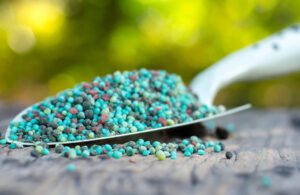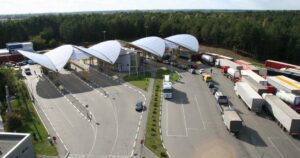
Kyiv plans to create a Municipal Bank and apply for the withdrawal of the insolvent Sich Bank from the market, Deputy Head of the Kyiv City Military Administration Mykola Povoroznik said.
“The city invests in the bank in order to create on its basis the Municipal Bank of Kyiv for further transformation into a universal financial instrument of the city. The municipal bank is the best and most reliable instrument for project financing and work with international financial organizations by foreign investors-partners to finance the work to restore the infrastructure of the city and the economy as a whole,” Povoroznik was quoted by the press service of the department in a message on the website of the administration.
He noted that the purchase of the Sich bank would make it possible to acquire a financial institution for less money and not wait one and a half to two years to create a new bank.
“For the city, buying an existing bank and turning it into a Municipal bank, as well as maintaining it, will cost a year less than what is currently spent on service fees at other banks,” the deputy head added.
In addition, such a decision will allow saving jobs and fulfilling obligations to the bank’s customers in full, the message says.
Average salary of staff employees (UAH)

State employment center

On Monday, the European Commission is signing a new budget support program with Ukraine in the amount of EUR 500 million.
The corresponding announcement in Brussels on Monday was made by the representative of the European Commission, Eric Mamer, talking about the documents to be signed within the meeting of the Council of the Ukraine-EU Association.
Mamer said on the sidelines of the Council, the European Commission is signing four sectoral agreements with Ukraine to further strengthen Ukraine’s cooperation with the EU. According to him, first, the European Commission and Ukraine are signing a new EUR 500 million budget support program as part of a pledge announced by the President as part of the Support Campaign for Ukraine in April and at a high-level conference held in Warsaw in May. This funding will guarantee housing and education for internally displaced persons, and will also support the agricultural sector, Mamer said.
The European Commission will also sign a number of other agreements. Among them is the participation of Ukraine in the European Union’s program “Digital Europe,” another agreement will allow Ukraine to participate in the tax program.

Scientists from the US National Institutes of Health recently found that tea has a beneficial effect on human health.
So, according to the study, those who drink at least two cups of black tea a day are more likely to live a long life than those who do not drink tea at all.
The researchers analyzed data from the British Biobank Genetic Information Repository of nearly 500,000 men and women aged 40 to 69 living in the UK.
As it turned out, 85% of these people regularly consumed tea. This is not surprising, given the love of the British population for tea and the traditions associated with this drink.
The results showed that the risk of death in the middle age group from diseases associated with the cardiovascular system is 9-13% lower in those who drink at least two cups of tea per day than in those who refuse this drink in general. .
At the same time, the authors of the study note that it does not matter exactly how you drink tea – with milk, sugar or lemon, the presence of the drink itself in your diet is important.
Professor of Medical Sciences and one of the authors of this work, Fernando Artalejo, however, notes that it is still impossible to say categorically that it was tea that caused less mortality in the studied population category. According to him, it cannot be ruled out that there were other factors not related to the use of tea.
Meanwhile, Chinese scientists have also reached similar conclusions about a possible connection between tea consumption and health effects. They found that the risk of dementia and heart attack is lower in people who drink two to three cups of coffee a day, or three to five cups of tea a day.

PJSC “Rivneazot” from the group of enterprises of the nitrogen business Group DF resumed the operation of the ammonia complex with a capacity of more than 650 tons of ammonia / day, and also began the launch of a limestone-ammonium nitrate (IAC) shop with a capacity of 1600 tons / day and a shop for non-concentrated nitric acid – a raw material for the production of fertilizers – with a capacity of 960 thousand tons of nitric acid per year.
“We have begun a planned seasonal campaign to launch key workshops. First of all, we will increase the production of IAC, the most demanded fertilizer today. Further resumption of production capacities will depend on market conditions – capacities will be loaded in proportion to effective demand,” the statement reads. Group DF message on Monday, the words of the head of the board of the enterprise Mikhail Zabluda.
He emphasized that an equally important factor in the resumption of the full cycle of production of mineral fertilizers is the availability and current cost of gas required for the production of fertilizers.
Zabluda pointed out that the decision to increase IAS production is due to the gradual resumption of seasonal demand for this fertilizer, as well as the opening of new export opportunities.
“Being a part of the Ostchem holding, Rivneazot prepared for the autumn season in a timely manner and in full in order to supply Ukrainian farmers with basic nitrogen fertilizers,” the head of the board noted.
According to the release, the restoration of work was preceded by the completion of the planned overhaul of the gas synthesis treatment unit in the Ammonia-2 shop, the overhaul of the turbogenerator unit, as well as the overhaul of unit No. 6 with a capacity of 120 thousand tons per year in the non-concentrated nitric acid shop and a number of necessary preparatory work equipment.
Group DF consolidates assets in the gas distribution, chemical, titanium and port industries, as well as in agriculture and media. The founder and owner of Group DF is Ukrainian businessman Dmitry Firtash.
Ostchem is a Group DF nitrogen holding uniting the largest producers of mineral fertilizers in Ukraine. It includes Rivneazot, Cherkasy Azot, as well as Severodonetsk Azot and Stirol located in the occupied territories.
PJSC “Rivneazot” has been part of the Ostchem group since 2011. According to Group DF, more than UAH 1.3 billion was invested in the enterprise during this time.
Rivneazot for 9 months 2021 received UAH 1 billion 811.79 million of net profit with a revenue of UAH 1 billion 676.24 million. The company ended 2020 with a net loss of UAH 4 billion 623.96 million after a net profit of UAH 4 billion 73.49 million a year earlier with a decrease in revenue by 7.3% to UAH 1 billion 831.63 million.
In the report for the 4th quarter of last year, the company indicated that it works on tolling raw materials, and its loss for the 4th quarter of UAH 624.7 million was caused by exchange rate differences, without which the company’s profit would have amounted to UAH 179.6 million.

Truck drivers blocked the road at the Polish checkpoint Yagodin-Dorogusk and went on strike demanding to improve the work of the Polish phytosanitary and veterinary control, said Deputy Minister of Infrastructure of Ukraine Mustafa Nayem.
“Polish drivers put forward three demands: speed up phytosanitary and veterinary control and transfer the service to a round-the-clock mode of operation,” he wrote on Facebook on Monday.
According to Nayem, every hour drivers let 2 cars pass: 1 with goods and 1 empty.
He clarified that 2,650 trucks are now waiting on the border with Poland in front of the Yagodin checkpoint to leave Poland, while 300 trucks are waiting to enter Ukraine. At the same time, the line for the last day has increased by 8 km and reaches 53 km.
Naem stressed that the cause of the strike was the indifference of the Polish authorities and the pretense that “nothing is happening.”
According to the Deputy Minister of Infrastructure, before the war, up to 80 trucks per day passed control, and in recent days – from 12 to 25.
“If there are objective reasons for such a slowdown, then we are ready to do everything in our power to speed up the process and increase the throughput of the checkpoint. But at the same time, we expect the same progress from all services on the Polish side,” Nayem said.
He added that the striking Polish drivers also want empty vehicles to leave Ukraine for Poland out of turn.
At the same time, the Deputy Minister stressed, it is also extremely important for Ukraine that goods leave the country for export as soon as possible.
“We have to export our products. Our carriers have to cross the border in a normal time. Because when they wait 7-10 days in line, they lose about 400 euros per car every day. In a week in line, the carrier loses more than just money , but any point in working at all,” Nayem said.
According to him, the problem of many days of idle time of carriers at the entrance to Poland should be solved by the establishment of round-the-clock phytosanitary and veterinary control.
In addition, the Deputy Minister stressed that there is no talk of abolishing the “transport visa-free regime”. “Most likely, this is a political demand of Polish carriers. The goal is to put additional pressure on the Polish government to solve the above problems,” Nayem said.
The day before, he said that the Ukrainian side repeatedly, at many closed, open, joint and bilateral meetings offered the Polish side a simple solution – to increase the number of employees of phytosanitary and veterinary services, to provide Ukrainian experts who would help Polish colleagues, or to remove this control beyond the points passes inland. However, the situation is only getting worse.